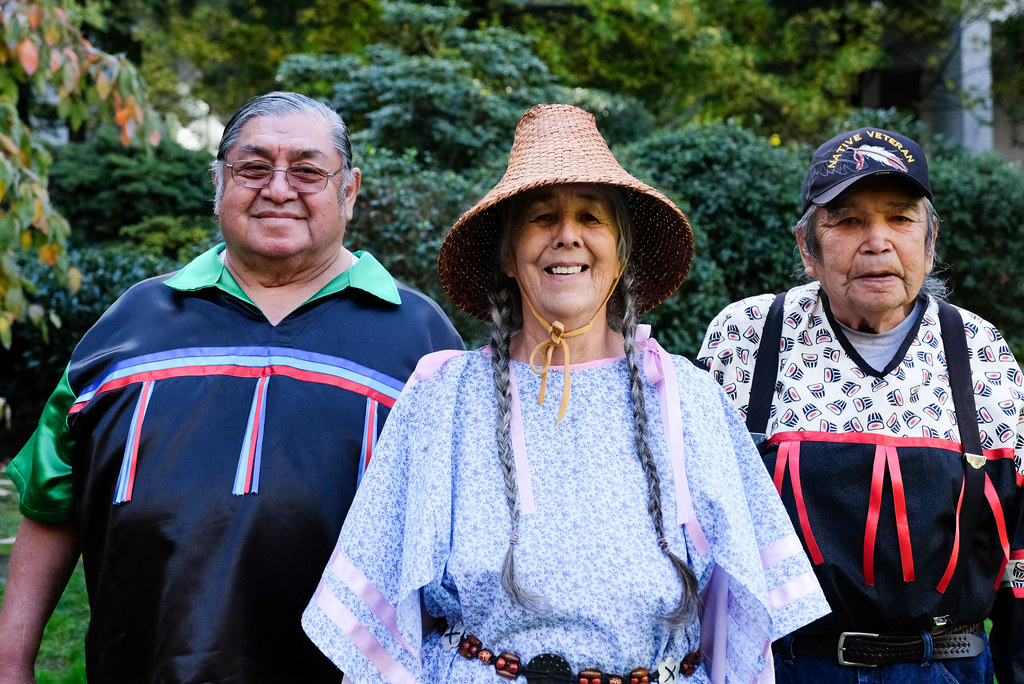Three tribal elders are planning an appeal in order to hold the federal government accountable for bulldozing a sacred site in Oregon.
The site, located near
Mount Hood, was home to burial grounds, sacred artifacts and medicinal plants used in religious ceremonies. It was destroyed in 2008 when the federal government approved a highway widening project.
After attempts to address the issue with the government hit an impasse, Carol Logan, an elder from the
Confederated Tribes of Grande Ronde, along with Wilbur Slockish and Johnny Jackson, both from the
Yakama Nation, filed suit in August 2015. They said the destruction of the site harmed the ability to practice their respective religions.
But in a recommendation on Friday, a federal magistrate said the elders aren't entitled to sue the government. The ruling has not yet been formally accepted by a judge but an appeal is already in the works.
“For centuries Native Americans have endured the destruction of sacred places by the federal government, and it’s heartbreaking that the court would say this completely preventable destruction was okay,” Logan said in a
press release. “All we want is the return of our sacred artifacts, the rededication of the area for our ancestors, and the promise that we can continue to worship as our tribes have done for centuries.”
In the recommendation, Magistrate Judge Youlee Yim You relied on a
disastrous case affecting the San Francisco Peaks in Arizona, where tribes and their citizens oppose the use of
reclaimed wastewater on sacred grounds. Essentially, the government is free to do what it wants on its own land, according to the ruling.
With respect to the site in Oregon, "plaintiffs have not established that they are being coerced to act contrary to their religious beliefs under the threat of sanctions or that a governmental benefit is being conditioned upon conduct that would violate their religious beliefs," You wrote.
The San Francisco Peaks dispute was decided by the
9th Circuit Court of Appeals. Oregon is part of the 9th Circuit so the Mount Hood case would be heard there too.
The case is
Slockish v. U.S. Federal Highway Administration. The elders are represented by Becket, a non-profit law firm that focuses on protecting religious rights.
Slockish v. U.S. Federal Highway Administration
 All Photos by The Becket Fund for Religious Liberty
All Photos by The Becket Fund for Religious Liberty
According to Becket, the firm has a "100% win-rate" before the
U.S. Supreme Court. That record includes the landmark decision in
Holt v. Hobbs, which has been cited by Indian inmates to protect their rights, though
not always with success.
The firm also won
Burwell v. Hobby Lobby and
Zubik v. Burwell, cases which arose when religious groups objected to provisions of the
Affordable Care Act.
Hobby Lobby in particular has been seen by commentators as a key development in religious freedom cases but it did not help the elders in the Oregon case.
"The Supreme Court’s decision in
Hobby Lobby does not change the analysis here," You wrote in the recommendation on Friday. She said the decision did not change the need to determine whether "government coercion or compulsion" has impacted someone's religious rights.
Join the Conversation
Related Stories
Carol
Logan: Grand Ronde Tribes owed apology for destruction of our sacred site
(October 23, 2017)

